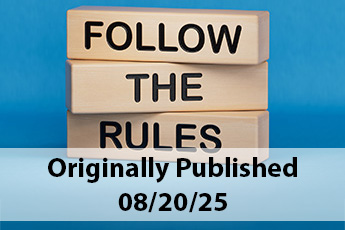Since we all use so much digital stuff these days, we found an innovation from Intel quite interesting. The company found a way to reduce display battery usage by 50%. This is a big deal because the display is the single biggest battery drain on any mobile device. This will be a welcome change and a positively charged one at that.
Speaking of how to get charged or perhaps not, we focus our discussion today on new rules from the Small Business Administration (SBA) around marijuana or cannabis activities.
The new rules are not just for cannabis-based businesses, but apply to anyone receiving revenue from cannabis businesses.
Banks may no longer issue SBA-backed loans to any business that directly interacts with the marijuana industry. The new edict holds even in the 29 states where medical marijuana is legal and the 9 states that allow recreational use.
This will be a tricky law to follow, because the obvious businesses (like bong shops) aren't the only ones affected. Now, businesses that are only tangentially connected to the marijuana business are impacted. Under the new rule, any business that provides products or services that could reasonably be seen as supporting the use, growth, development, or enhancement of marijuana is ineligible.
How about a garden-supply store? It mostly sells soil, plants, sprinkler systems, fertilizer, and potting supplies to commercial landscaping companies and homeowners. Yet, it could be ineligible for an SBA loan, as a marijuana grower can also stroll in and reasonably be seen to make a purchase at the same store.
Similarly, the architect who designs a grow facility or the contractor or engineer who builds the structure could also be turned away for SBA loans. Even the website builder, accountant and others could be impacted in this situation.
To continue offering SBA-backed loans, bank borrowers will have to attest that they are not directly involved in the marijuana business, nor are they deriving income from the industry.
That sounds easy, but the SBA also recommends that banks review customers' websites to see how they market themselves, and review potential borrowers' accounts receivable.
Alternatively, businesses could avoid SBA-backed loans and go to other sources of funding perhaps. They could also refuse to sell their goods or services to companies in the marijuana industry. Under these scenarios, at least one firm -- the business, the bank, or both -- will lose a customer and the revenue that would have come with that relationship.
Even if the borrower is in the clear and can proceed with an SBA-backed loan, the additional due diligence will cost time and effort. You still have to do this for BSA/AML, but this adds yet another wrinkle and could even jeopardize insurance on these loans too.
Future SBA guidance might set some minimal amount of revenue from marijuana growers, distributors, and sellers that a firm can accept and still maintain eligibility for an SBA-backed loan. For now, though, businesses and banks in states where marijuana is legal have yet another new powerful issue to handle.




